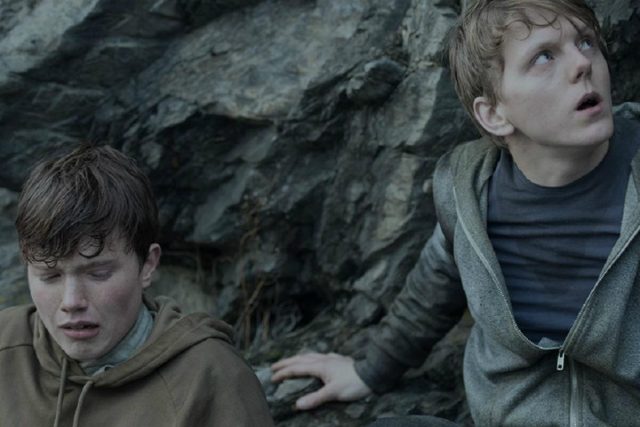22 July: Norwegian Air, by David Bax
With his previous depictions of real life trauma, terror and violence (Bloody Sunday, United 93, Captain Phillips), director Paul Greengrass has maintained a just-the-facts, nearly real time approach to the depiction of the events themselves, managing to be respectful of both the dead and the survivors while also avoiding overdramatic grandeur. In his new film, 22 July, which concerns the two attacks carried out by one man in Norway on July 22, 2011 that left 77 people dead, he switches things up. Taking a page, perhaps, from Saving Private Ryan, he treats the actual events as a lengthy and harrowing prologue and then spends the rest of the time on the aftermath. Frankly, he should have stuck to his old formula.
Using an entirely Norwegian cast despite the film being in English, 22 July‘s two main narrative threads follow the killer himself, Anders Behring Breivik (Anders Danielsen Lie), as well Viljar Hanssen (Jonas Strand Gravli), a survivor of the attacks who was shot five times. Their lives intersect, obviously, at the beginning of the film and then again at the end, many months later, when Hanssen testifies at Breivik’s trial.
Even though 22 July moves chronologically far beyond its inciting incident, Greengrass’ visual style never quite lets up. The camera still stalks, interrogates and intrudes on the subjects, like a stubbornly vigilant bit of high-tech surveillance.
Greengrass’ notion of storytelling hasn’t changed much, either. Despite 22 July being their first collaboration, he and editor William Goldenberg establish a determined forward momentum that will be familiar to the director’s work. The resulting, grim matter of factness is helpful in depicting a massacre without sensationalizing it but does little to hide the cheap dramatics of Breivik’s trial or Hanssen’s physical rehabilitation.
It’s been tempting, perhaps, in the past to scoff at Greengrass’ fixation on tragedy porn. But 22 July feels like the first to really earn that derision. It’s not the depiction of the killings themselves that feel exploitative but that of what follows. That’s because, after the film’s first section, its true goals quickly become apparent. When Breivik, after his arrest, lists his demands as a “complete ban on immigration” and an end to “enforced multiculturalism,” Greengrass is boldly underlining the resurgence of white nationalism and the rise of the “alt-right” figures who espouse it. Breivik’s panic at the thought of an “Islamic Europe” is echoed in the way American far right groups quake in their boots at the imagined threat of a non-white horde decimating their nebulous “white culture.” And Breivik’s own, sweet mother tut-tutting about “The way the country’s going” and how “It’s not like it used to be” echoes the “Make American Great Again” xenophobia passed off as presentable small town values. Greengrass makes the connection to the United States plain when Breivik’s lawyer (Jon Øigarden) asks a leading alt-right figure, who is bragging about his movement’s spread, “How about America?” Make no mistake, this question is for the audience’s benefit, not his client’s. In fact, that’s increasingly true of 22 July as its runtime marches on; the film becomes little more than an opportunity to shake our heads in disapproval of Nazis. Those of us who are liberal can get the same self-satisfaction from checking our Twitter feeds.
It would be demeaning and insulting to call 22 July a “feel-good” movie but it’s just as distasteful, in its own way, for Greengrass to sidestep so much real pain in favor of political and emotional grandstanding. He almost completely avoids depicting those whose family members were actually killed by Breivik, the only exception being a girl (Seda Witt) whose sister was killed. Even she, though, is little more than a cheerleader for Hanssen’s recovery. Greengrass’ other films in this tradition are interested in how human beings react in the face of unimaginable horror. 22 July is only interested in itself and all of its verite draping can’t obscure its underlying, speechifying hokum.





























What a remarkably glib and monumentally cynical reading of this film.